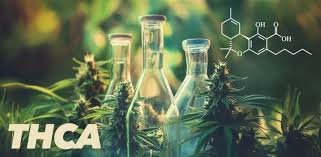
Swedish consumers are no strangers to wellness innovations. From superfoods to CBD, new health products are constantly tested and evaluated. The latest addition to this list is THCA, a compound with potential benefits but complex implications.
For those considering THCA vapes, curiosity must go hand in hand with responsibility. This article provides a practical guide for Swedish consumers, covering everything from scientific basics to safe purchasing.
Most people know about CBD as the calming cannabinoid and THC as the psychoactive one. THCA sits between these two in a unique role. Found in raw cannabis plants, it is the acidic form of THC that has not been activated by heat.
This means it does not cause intoxication, making it attractive for wellness users. Yet, once heated, THCA becomes THC. Understanding this transformation is essential for Swedish consumers navigating a strict legal environment.
Vaping provides a modern alternative to traditional smoking. It heats oils at controlled temperatures, producing vapor that carries cannabinoids into the lungs. For THCA, this can mean either inhaling the cannabinoid in its natural state or accidentally converting it into THC.
Temperature management is therefore crucial. A well-designed vape pen with adjustable heat settings is safer than a cheap, uncontrolled device. Swedish consumers who wish to remain compliant with the law must be especially cautious.
Sweden’s drug policy is one of Europe’s strictest. THC is fully banned, with no medical exceptions. THCA, however, remains unclassified. Since it does not intoxicate in its raw form, it is not directly illegal. But because of its potential to become THC, authorities approach it carefully.
This creates a legal gray area. Consumers cannot assume that simply buying a THCA product shields them from legal risk. The interpretation of law depends on context, product design, and testing.
Scientific studies point to several promising uses of THCA:
May reduce inflammation and support people with chronic conditions.
Could provide neuroprotection, offering benefits for brain health.
Shows potential for reducing nausea and vomiting, especially for patients undergoing treatment.
Might improve appetite, supporting nutritional recovery.
Although these effects are not fully confirmed, they highlight why THCA is gaining global interest.
The main risks include:
Conversion risk: THCA can unintentionally become THC during vaping.
Quality issues: Without lab testing, products may contain harmful residues.
Legal risk: Unclear classification means authorities may treat THCA as THC under certain circumstances.
For these reasons, Swedish consumers must prioritize both safety and legality.
To reduce risks, follow these steps:
Ask for Certificates of Analysis (COAs): Verify the absence of THC and contaminants.
Choose trusted vendors: Avoid unverified websites with no transparency.
Look for safe extraction methods: Ensure products are made with clean techniques.
Stay updated on laws: Rules can evolve quickly.
A recommended option for Swedish buyers is THCA Sverige